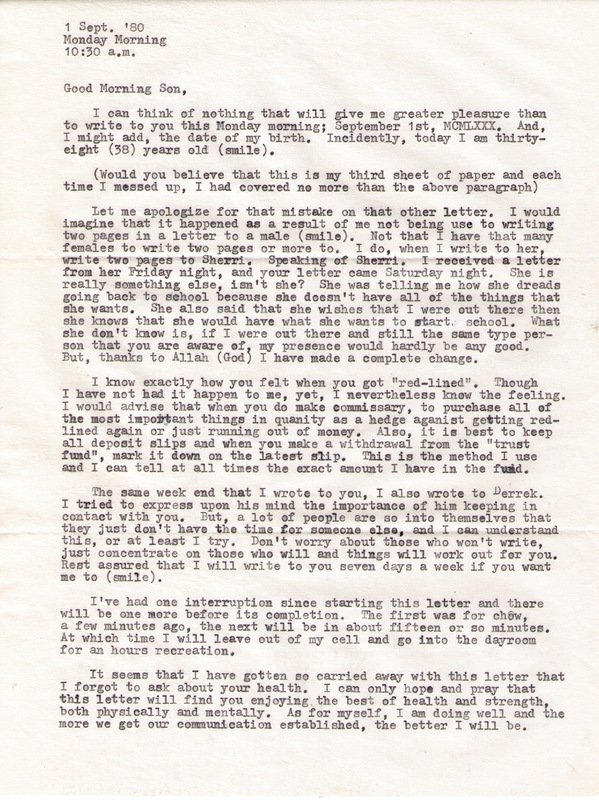Arbitrary Injustice
"No one shall be subjected to arbitrary arrest, detention or exile." Article 9, Universal Declaration of Human Rights
The state of Texas has the highest federal prison execution rate in the United States. With that prominent of a statistic, it would be easy for names and faces to get lost and be forgotten, except for one. Charlie Brooks’ story is well-known history in The Lone Star State, but for more than one reason. Not only was Brooks the first person to be executed via lethal injection, but his case was also thought to be wrongfully processed. Having been known in his community as a kind-hearted and loving man, many believe that Brooks was innocent. Out of all of the voices, those of his family members resonate as they discuss their father’s story, and the great injustice that comes with it.
The Universal Declaration of Human Rights, adopted on December 10th, 1948 consists of 30 articles outlining the basic human rights that should be granted to, acknowledged, and respected by everyone. The document covers subjects from discrimination to the right to an education, and everything in between. Article 9, stated at the top of this page, addresses one’s right to a fair due process of law--something that the Brooks family does not believe Charlie Brooks received.
After being convicted of capital murder of a car lot owner in Fort Worth, Brooks was sentenced to death, along with another man who was with him on that night in 1977. While Brooks received stay after stay in repeated attempts to delay and even prevent his execution, the other man’s sentence was reduced to forty years. His struggles were broadcasted everywhere, in articles similar to what can be seen to the left, titled “Execution stay refused for killer.” In the article, it states that Brooks was deprived of a fair trial and proper due process “because the court rejected a potential juror who said that she might not be able to sentence a person to die” (Lloyd 1). Furthermore, his original defense attorney suffered from a heart attack, therefore a substitute attorney took his place, but was grossly “unfamiliar with the case to handle the defense” (Lloyd 1). Public newspaper articles like this one were read all over the area, and when the story made national headlines, the ambiguity of Brooks’ case and denial of his right to due process under the Universal Declaration of Human Rights became more and more prominent.
In a 2013 interview with Derrek Brooks, one of Charlie Brooks’ two sons, even more supposed injustice is revealed. According to Derrek Brooks, his father studied and became a paralegal while incarcerated, calling him the “jailhouse lawyer” (Brooks 2013). However, Derrek “personally felt like the state of Texas didn’t really want (him) helping,” and therefore there was no incentive to keep him alive (Brooks 2013). Supreme Court Justice Thurgood Marshall, who was a dissenter on the vote to let Charlie Brooks’ execution proceed, claims that “there’s a flaw in the system,” and questions how one can “execute the guy when his appeals process hasn't been exhausted?” (Brooks 2013). Based on the personal dissertations of the Brooks family, as well as the words of Charlie Brooks himself in letters to his children, Charlie Brooks was a man with demons, but also one who was “awfully proud” of his two boys (Brooks 1980). More importantly, he still has a family who continues to support him, and are determined to discover the truth, despite the unfair treatment Brooks received by the judicial system.
From the perspective of those who respect and enforce the words of the Universal Declaration of Human Rights, Charlie Brooks’s protection from arbitrary arrest, detention or exile was taken from him by the negligence of improper due process. Although he made some mistakes in his life, Brooks was known by many to have good intentions. His case is now 35 years old, yet many incarcerated individuals, whether they are on death row or not, are currently facing the same unnecessary complications that Brooks saw in 1982. In order to prevent more families from suffering under the same muddle and heartbreak as the Brooks family, article 9 of the Universal Declaration of Human Rights must be more strictly upheld for everyone.
By Sammee Mazzone


